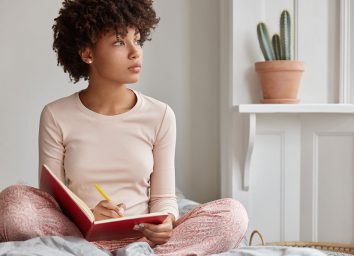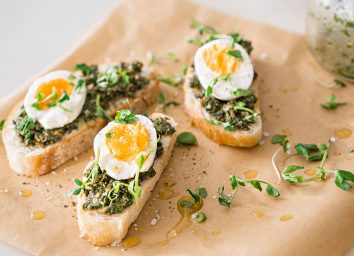I Took All Social Media Apps Off My Phone 14 Months Ago, and I’m a Totally Different Person
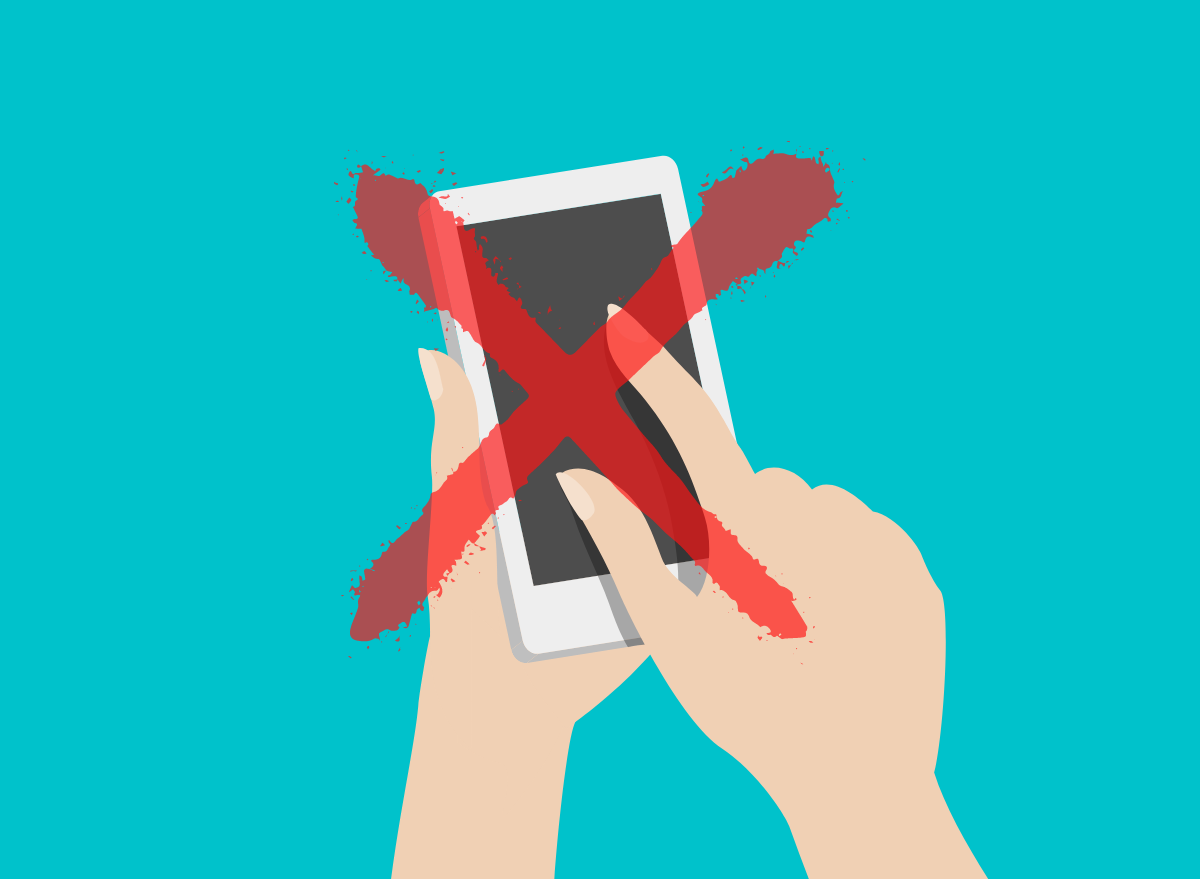
From 12 to 6 p.m. on Monday, Oct. 4, the world essentially stopped. Okay, okay, that’s a bit dramatic. But for avid Facebook and Instagram users, it sort of felt that way. This monolith family of social networks experienced a “blackout” for several hours during the day, forcing people to look up from their phones and, essentially, smell the roses. Or at least pop over onto Twitter and joke about it for a few hours.
What surprised me about the entire ordeal was the public’s reaction after the blackout was over. Instead of the moaning and groaning that you usually expect online, when Instagram came back to life, many people took to their feeds to talk about how nice it was to not have the pressure of social media for a few hours. Some even claimed that maybe this was a sign to start taking mental health breaks from their social media every once in a while. Others even admitted they wished the social networks just didn’t come back at all.
So…what if you just didn’t let it?
Their reactions, I admit, left me with the kind of smirk you expect to see on your mom right before she says “I told you so.” Because after 14 months of not having social media on my phone, I know what life is like without that constant pressure in my pocket. And it is the most freeing experience to live a life without it.
I deleted the apps because I admitted to an addiction.
As you can see, I work in media. I’ve always had a love for the intermingling of social media and the news, even back when I created my Twitter account in 2009. I was fascinated that I could get a New York Times update online every 15 minutes without a newspaper subscription.
My concentration throughout journalism school has always been social media, so I knew that having professional, public social accounts was a necessity for my line of work. I kept telling myself that posting all the time was a part of landing a job, and eventually, keeping my skills sharp once I landed said dream job. Being a social media editor meant constantly refreshing your feed, staying on top of the news as well as readers’ comments, and almost always falling asleep in bed with your phone in your hand.
And yet, when I decided to make a slight job change and step out of social media, my tendencies to always be on my phone never changed. I was still constantly scrolling on Instagram or Facebook, not really gaining any kind of knowledge or doing anything productive. I would tell myself it was all for work, but after my phone had the audacity to let me know I was averaging 6 hours on social apps alone each day, I knew it was becoming an issue.
Not to mention the fact that it was taking a serious toll on my personal life. I let myself worry about the shape of my body compared to Instagram influencers, compare the trajectory of my career to other editors at my level, or even got angry at my husband for not “doing what other couples do” in their marriage—or at least the version I would see online.
When I went on a social media hiatus during a camping trip last year, I realized that the constant pressure I felt in my chest was completely gone. I didn’t reach for my phone once to take a picture or document what I was doing. I was simply enjoying myself outdoors, and I loved that feeling. And it made me think…what would life be like if I just didn’t bring it back at all? Would I always feel this free?
So at the end of my trip, 14 months ago, I deleted all the social media apps from my phone for good.
“Addiction” looks different for everyone.
It’s easy to joke about having a social media addiction, especially when there are so many others making fun of it with you. This is why labeling social media as an “addiction” may seem strange when compared to other addictions that are normally associated with the word.
“No one is making jokes about drugs or alcohol addictions or even eating disorders,” says Sydney Greene, MS, RD, registered dietitian and member of our medical expert board. “But when we talk about being addicted to our screens, it’s funny—but it’s not. It’s more socially acceptable.”
After suffering from alcoholism herself, Greene now works with clients through different kinds of addictions and mentions that you don’t always have to reach a “low bottom” in order to admit you have a problem with a substance.
“Low bottom is what you see in the movies—like someone is kicked out of the house and living under the bridge,” says Greene. “And then there is a high bottom like my story. I was getting A’s in grad school. I was in a relationship. I was working a job. But then I couldn’t live a life without alcohol…and no one could see that my life was crumbling. I couldn’t point to one [moment], it was like this constant doom and gloom cloud.”
Alcoholism has always been an addiction to take seriously due to the effects it has on the individual as well as their surrounding community, and for many, this type of addiction does not even compare. And yet, a recent article in The Atlantic finds the symptoms of social media addiction and alcoholism eerily similar in nature.
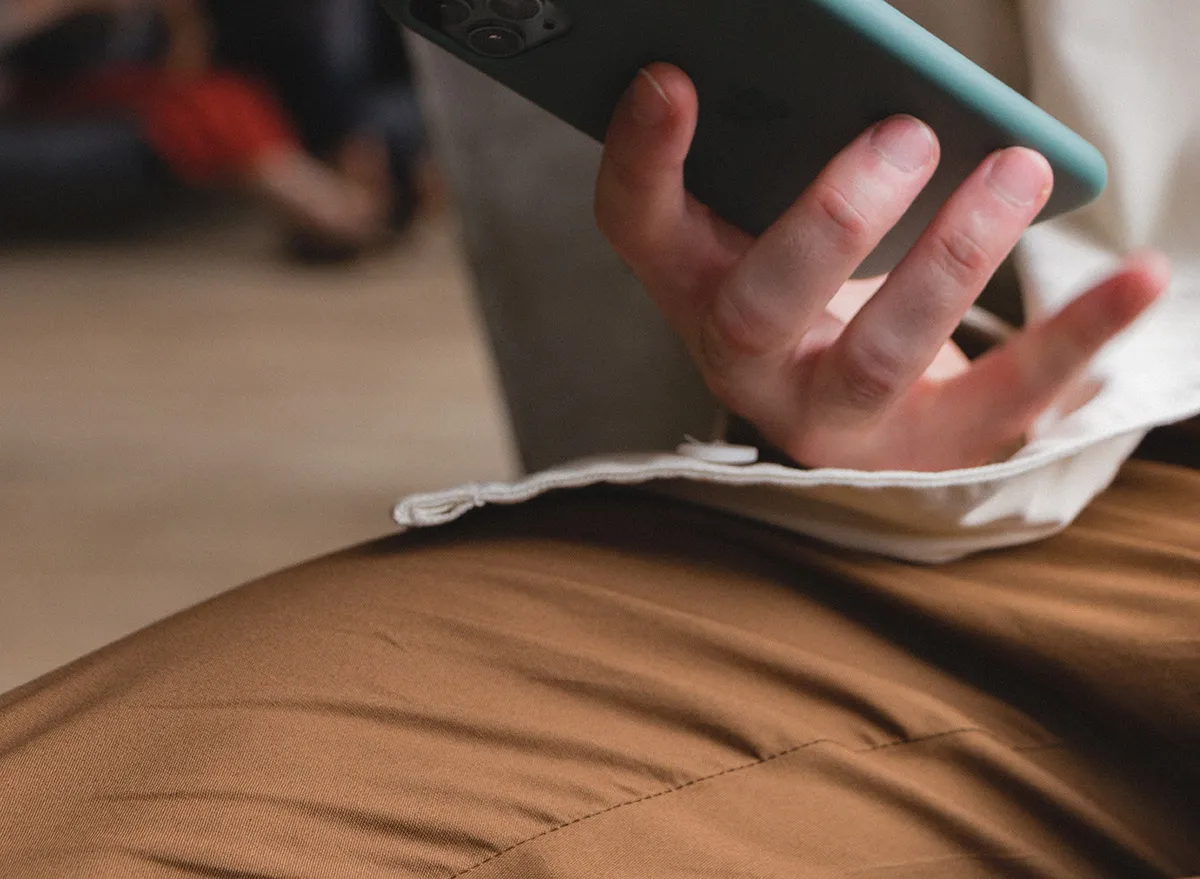
Research even links social media use and addiction.
“Indeed social media can be like any other addiction,” says Alex Dimitriu, MD, double board-certified in psychiatry and sleep medicine and founder of Menlo Park Psychiatry & Sleep Medicine. “At base, there is a foraging or searching behavior, which is often rewarded with ‘a find,’ and the ensuing surge in dopamine. Many social media experiences follow this pattern and that is how people can stay up way too late in the night endlessly scrolling.”
A 2018 study published by the Journal of Mehmet Akif Ersoy University Economics and Administrative Sciences Faculty focused on the dopamine response for social media users and did find “similar biological and psychological symptoms of alcohol, cigarette, and drug addicts.” Symptoms of “depression, death, suicidal thoughts, low self-esteem, loneliness, and social isolation” were also felt in study participants, which were all linked to dopamine—the brain’s neuro-chemical response that gives you feelings of pleasure. Users can easily be swept into a “social media dopamine loop” which is very similar to a drug-addicted one.
I admit, when I hear the term “social media dopamine loop,” I instantly think of that feeling I used to get by opening an app or scrolling down to refresh my feed.
Another study from the Indian Journal of Community Medicine stated that a third of their 1,870 study subjects were found to be addicted to social media, while the majority of subjects had a “mild addiction.” Even Instagram released a study stating that 32% of teen girls said Instagram made them feel worse about their bodies, but they couldn’t seem to quit it because they felt addicted to the app. This type of internal investigation is one of many that is at the height of the Facebook whistleblower’s complaints to federal lawmakers.
The Addiction Center even offers resources for social media addiction and states that 5% to 10% of Americans meet the criteria for a behavioral social media addiction today.
“It can be difficult to turn inward and examine our own behaviors, especially if we are being told that we may be forming addictions with social media,” says Ernesto Lira de la Rosa, psychologist, and Hope for Depression Research Foundation media advisor. “Addictions come with a lot of shame and guilt and we tend to push away things that cause us to feel ashamed and guilty. I also think that some people may not take it seriously because they may not know what to do once they realize they may have an unhealthy relationship with social media or internet use. If we normalize and demystify social media addiction, we may be better able to reach people at earlier stages of addiction.”
Social media can be beautiful—but also cruel.
There’s no denying that social media has its perks. It’s a wonderful tool for keeping community, furthering education, cultivating creativity, and even for lifting up small businesses. Greene even points out that using social media, like Instagram, is a major tool for her business and connecting with clients.
And yet, given that most people voiced “loving” the fact that they didn’t have to worry about social media during Monday’s blackout, there seems to be a deep desire for letting it all go. Or at least taking a mental health break every once in a while.
“Screentime during the pandemic was at a record high, and people are burnt out from social media as well,” says Israa Nasir, MHC, therapist. and founder of the Well Guide. “Research has already shown the negative impact social media has on mood, lowered self-perception of competency and ‘success,’ as well as increasing social comparisons. All these things combined can create a very negative or high-pressure experience on social media for people. So naturally, when it was taken away from us, it felt like a relief.”
“Being on our phones and on social media can take a lot of energy and brain space that takes away from other activities,” says Dr. Margaret Sala, a licensed clinical psychologist and assistant professor of psychology at the Ferkauf Graduate School of Psychology at Yeshiva University. “We end up scrolling on our phones instead of focusing on our work, working on our relationships, exercising, meditating, developing new hobbies, reading books.”
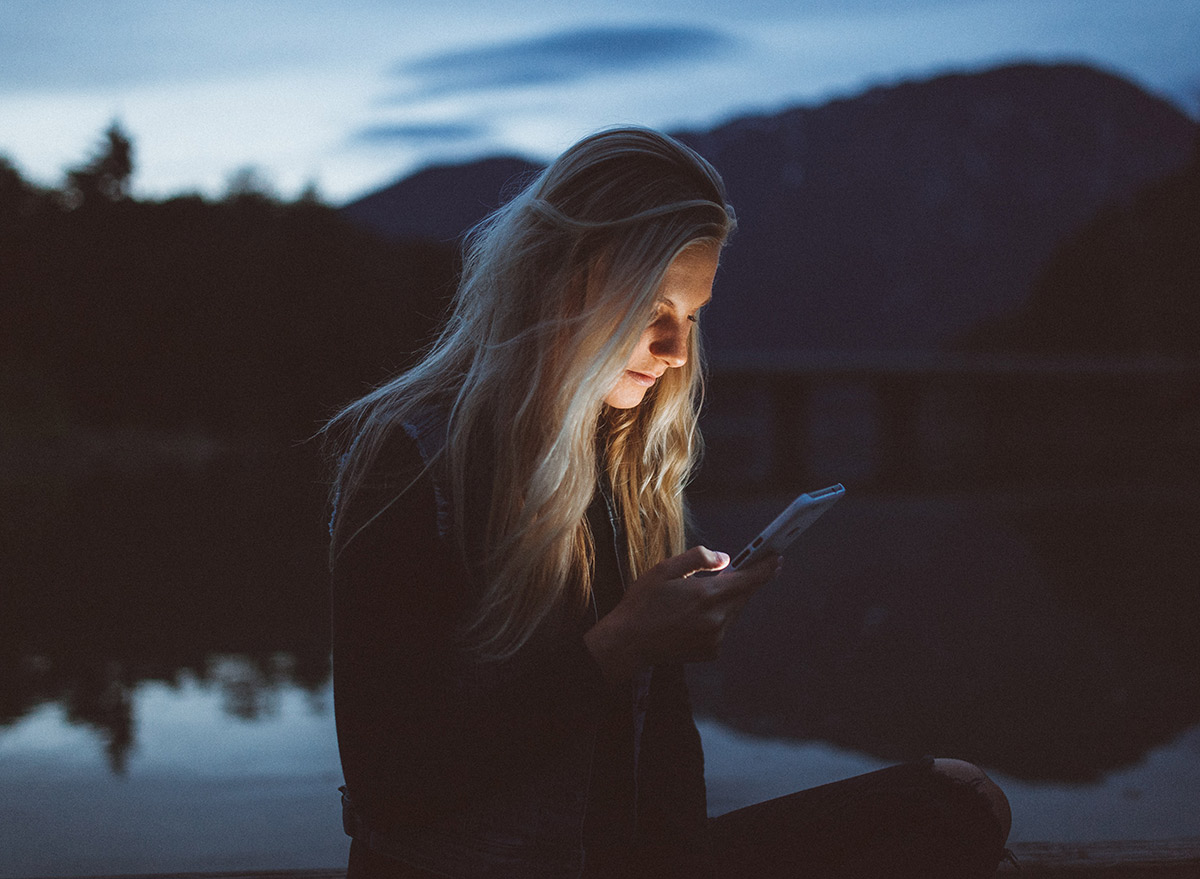
Out of all the ways social media takes up energy and brain space, mental health professionals agree that comparison is the ugly underbelly of social media that causes all kinds of mental and even physical repercussions.
“This is one of the [strongest] ways to feel depressed—especially when all you’re seeing is everyone else’s best moments,” says Raffi Bilek, LCSW-C, therapist and director of the Baltimore Therapy Center. “Everyone looks happy in their Facebook photos. People rarely post images of the fights they have with their spouse, the children misbehaving, the dessert they totally messed up, or any of the normal missteps of daily life. Instead, it’s all smiling families, perfect soufflés, and fail-free lives. And then you look at your own life, which is definitely not perfect, and you feel crummy about yourself.”
“We, maybe even unconsciously, feel the pull to get online and check and see what others are doing,” says Michelle Chalfant, licensed therapist, holistic life coach, and developer and host of the podcast The Adult Chair®. “Even just scrolling taps into our instincts for seeking and hunting, and our brains love getting new input. The blackout gave our brains a break from the constant input, and, for those who struggle with comparison, it also offered a break from the constant self-scrutiny or search for validation.”
Constant social media use can also play a serious role in the immediate relationships around you. Do you want to know how many times I’ve been in a room full of people scrolling on their phones, sitting by myself with a glass of wine? Actually, you may not want to want to know the answer to that.
“Social media can make it hard to make real-life connections and build relationships,” says Dr. Sala. “Instead of calling or seeing our friends, we now often rely on social media to see what they are up to. Furthermore, often when spending time with others [like] our kids or our partners, we end up being distracted by our phones.”
Setting healthy boundaries completely changed my life.
A simple Google search will tell anyone that yes, I still have social media and, yes, I still post frequently. I use my accounts for professional purposes—but only interact with them on my computer desktop during proper working hours. It sets a healthier boundary for my life where I’m not constantly scrolling or posting with my phone, which is a device that goes everywhere with me (unlike my computer).
In my free time, I find myself actually living the life I want to live—one that I guess you could say is “Instagram worthy” already. My stress levels significantly decreased. I read all the time. I crochet blankets. I’m reteaching myself how to play the piano. And I even wrote my first novel. Will I publish it? Who knows. But I can finally tell people that I actually did it, instead of wishing I did while scrolling through Instagram on my couch.
This is the boundary that has worked for me, but just like nutrition, you have to find out what works best for you.
Another boundary to consider is one Greene recommends to her clients: don’t open any social media apps during the “bookends” of your day.
“I try for [my clients] to not look at their phones until they walk out the door for work, or at least until they’ve had some water, eat some breakfast, and get ready for the day,” she says. “No screen time before bed in the evening and in the morning.”
She also highly recommends unfollowing any accounts that cause mental strain or anxiety, and instead, focus on following accounts that are related to hobbies that give you joy—like the National Park Service for some outdoor inspiration.
And who knows, maybe with these new boundaries you set, you’ll find yourself finally living the life you’ve always wanted to live—like the kind of person who writes a whole book. Because apparently, I’m that type of person now.
If you or someone you love is struggling with any type of addiction and you are in need of help, call the Substance Abuse and Mental Health Services Administration‘s National Hotline at 1-800-662-4357.
For more mental health stories, read these next:

